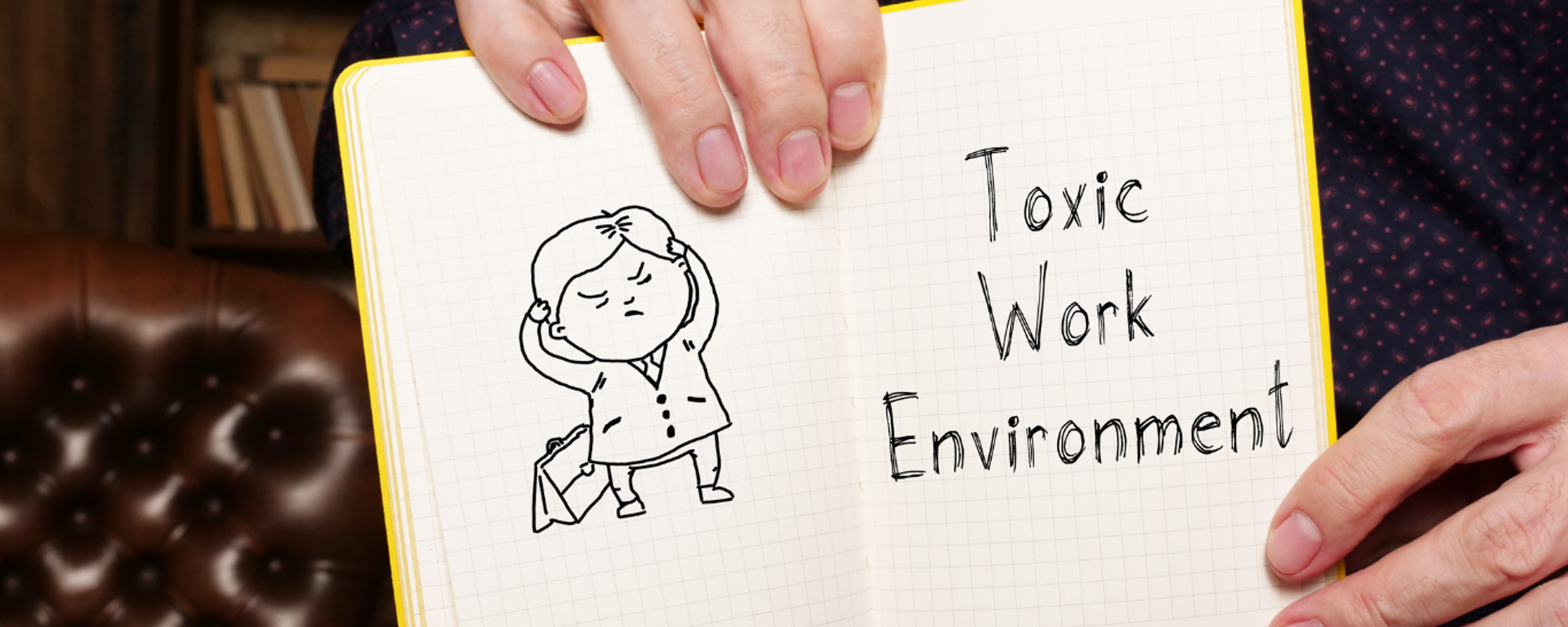How do you recognise the signs of a toxic culture?
In the complex world of organisational dynamics, sometimes things go south, leading to a toxic culture that silently undermines the business's core. Recognising the signs of a toxic culture is crucial, as it's about spotting the subtle and obvious indicators of a deeper problem. A toxic organisational culture can stealthily sabotage employee wellbeing and the overall success of the business.
The Silent Killers of a Healthy Workplace:
When Communication Breaks Down
Imagine a scenario where nobody knows what's going on, or worse, everyone's getting mixed messages. This lack of transparency and open communication is often the first warning sign of a toxic culture. It's like trying to complete a puzzle with half the pieces missing.
The Revolving Door of High Turnover
Then there's the issue of high employee turnover. It's like a never-ending parade of exits, a clear signal that something's not right. J. Browning's study on employee retention in the restaurant industry highlights how certain climates and communication styles can significantly impact turnover rates.
The Exhaustion Epidemic: Employee Burnout
Consider the toll of high stress and burnout on employees. It's not just about being tired; it's about a culture that pushes people beyond their limits, leading to decreased productivity and increased absenteeism.
Trust: The Crumbling Foundation
A workplace where trust and respect are in short supply can erode the very foundation of a healthy environment. Neta Meidav's research points out the importance of ethical behaviour in fostering trust within the workplace.
The Culture of Fear: Walking on Eggshells
In a toxic culture, fear often trumps innovation. Employees who are afraid to speak up or challenge the status quo are signs of a culture where mistakes are punished more than successes are celebrated.
Crossing the Line: Ethical Issues
Regular occurrences of unethical behaviour or decision-making are glaring indicators of a toxic culture. Kijpokin Kasemsap's work on organizational justice discusses how the lack thereof can lead to ethical dilemmas and negative organizational outcomes.
FAQs on Identifying a Toxic Culture
How can I tell if my organisation has a toxic culture?
Look for signs like poor communication, high turnover, employee burnout, lack of trust, fear of retribution, and ethical issues.
What impact does a toxic culture have on employees?
It can lead to decreased morale, increased stress, and a general feeling of dissatisfaction and disengagement.
Can a toxic culture be fixed?
Yes, with committed leadership and a willingness to make fundamental changes, a toxic culture can be transformed.
Asking "What are the Signs of a Toxic Culture?" is the first step towards healing and change. Recognising these signs is vital for any organisation that values its people and its future. Like a ship navigating troubled waters, the key is to spot the storm clouds early and steer the organisation back to calmer seas, where a healthy, vibrant culture can thrive.
References
Meidav, N. (2021), "Ethical behavior is the antidote to toxic culture", Strategic HR Review, Vol. 20 No. 2, pp. 47-50. https://doi.org/10.1108/SHR-10-2020-0088
Kasemsap, K. (2017). Exploring the Role of Organizational Justice in the Modern Workplace. In B. Christiansen & H. Chandan (Eds.), Handbook of Research on Organizational Culture and Diversity in the Modern Workforce (pp. 323-345). IGI Global. https://doi.org/10.4018/978-1-5225-2250-8.ch015
Browning, J.G. (2019). Investigating Restaurant Climate and Verbal Aggressiveness as Antecedents of Employee Retention in The Restaurant Industry.
https://mds.marshall.edu/cgi/viewcontent.cgi?article=1213&context=colaconf


